Faculty Contribution to the Sustainable Development Goals
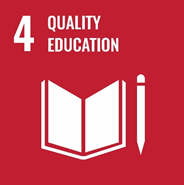
Quality Education is enshrined in our Strategic Goals. Numerous enhancements as evidenced in the Senate Report, Vice-Chancellors Report as well as Performance Assessment Report highlights the significant effort by UNIZULU to provide quality education to our students. From continuous programme reviews, to the development of new programmes in line with societal needs, UNIZULU has transformed in line with its vision to provide quality education as a comprehensive institution. Support services such as the Library contributes to a quality learning environment. Student staff ratios have received great attention and several mentorship and tutorship programmes were developed. Continuous workshops aimed at teaching and learning as well as research enhances student experiences and the university focuses on students at risk to address learning concerns.
Noting the challenges faced by the SA school system, especially in the key areas of Mathematics and Science, UNIZULU has prioritized community outreach by running the UNIZULU Science Centre for over 33 years. This multiple award-winning project has assisted more than half a million pupils and their teachers in over 800 schools in the three educational districts surrounding the University. Most of these schools are in deep rural areas and severely under resourced.
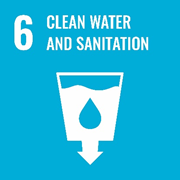
Most municipalities struggle to keep up with the payment for bulk electricity purchases from Eskom, and as at March 2018 Eskom’s Chairman indicated that the debt burden stood at over R13.5 billion and continued to rise. The fiscal framework for some municipalities is unviable, posing a serious risk to their financial sustainability. To mitigate this shortcoming, the Department of Chemistry at UNIZULU has conducted Techno-economic Feasibility Studies for uMhlathuze Municipality to forecast the amount of green electricity which could be generated from the Municipality’s eight Waste Water Treatment Plants. The Department used advanced models, both statistical as well as mathematical, for forecasting. The results obtained showed that all Waste Water Treatment Plants were technically feasibe but not all of them were economically viable for biogas generation. In addition, the results also showed that should the Municipality opt for WWTP-Biogas Technology Systems, they would save approximately R 3 000 000,00 per annum from each Waste Water Treatment Plant.
The Department of Physics and Engineering is doing work on diffusion kinetics investigation of Mg implanted Pd/Zr/Pd/Ti/Pd/CP-Ti multilayer system using Rutherford backscattering spectrometry (RBS) and Elastic Recoil Detection Analysis (ERDA) for hydrogen storage applications. Storage of Hydrogen (H2) in metal as Hydrides has recently attracted much interest from researchers due to its great potential to solve Hydrogen storage challenges. Hydrogen is a very reactive gas and is highly flammable. Therefore, safe transportation and storage are critical. Incorporation of Hydrogen in solid materials has recently been identified as a solution to the storage problem. This will also come as a solution to the automotive industry because there is a drive to change from fossil fuel to Hydrogen, meaning that cars will use hydrogen as a fuel rather than petrol which is a result of fossil fuel. This will also be a solution to environmental pollution that come from cars as carbon monoxide.
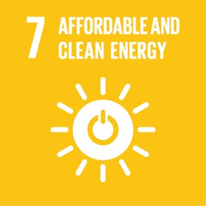
Most municipalities struggle to keep up with the payment for bulk electricity purchases from Eskom, and as at March 2018 Eskom’s Chairman indicated that the debt burden stood at over R13.5 billion and continued to rise. The fiscal framework for some municipalities is unviable, posing a serious risk to their financial sustainability. To mitigate this shortcoming, the Department of Chemistry at UNIZULU has conducted Techno-economic Feasibility Studies for uMhlathuze Municipality to forecast the amount of green electricity which could be generated from the Municipality’s eight Waste Water Treatment Plants. The Department used advanced models, both statistical as well as mathematical, for forecasting. The results obtained showed that all Waste Water Treatment Plants were technically feasibe but not all of them were economically viable for biogas generation. In addition, the results also showed that should the Municipality opt for WWTP-Biogas Technology Systems, they would save approximately R 3 000 000,00 per annum from each Waste Water Treatment Plant.
The Department of Physics and Engineering is doing work on diffusion kinetics investigation of Mg implanted Pd/Zr/Pd/Ti/Pd/CP-Ti multilayer system using Rutherford backscattering spectrometry (RBS) and Elastic Recoil Detection Analysis (ERDA) for hydrogen storage applications. Storage of Hydrogen (H2) in metal as Hydrides has recently attracted much interest from researchers due to its great potential to solve Hydrogen storage challenges. Hydrogen is a very reactive gas and is highly flammable. Therefore, safe transportation and storage are critical. Incorporation of Hydrogen in solid materials has recently been identified as a solution to the storage problem. This will also come as a solution to the automotive industry because there is a drive to change from fossil fuel to Hydrogen, meaning that cars will use hydrogen as a fuel rather than petrol which is a result of fossil fuel. This will also be a solution to environmental pollution that come from cars as carbon monoxide.
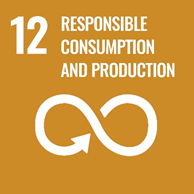
The majority of the lecturers use Moodle and WhatsApp and emails. The academics posts videos, links for google books Lecture notes, audio lectures, You Tube Videos. The assessments are conducted as such.
The zero-rating arrangement currently allows for the free viewing of lecture videos on Moodle. This teaching option will be promoted to our academics going forward. Although Moodle is mobile, writing tests on mobile phones is a challenge. The Faculty has nevertheless managed to have some assessments with the students already using various methods, and students have done the assessments:
- Test on Moodle with a time limit for submitting back answers
- Google forms with a time limit for submitting back answers
- Emailing assessments to individual students with a time limit for submitting back answers
- MCQ’s
- Students taking photographs of their work and submitting answers via WhatsApp within a limited time frame stipulated by lecturer while conducting the test.
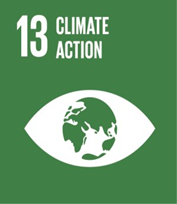
Due to climate change effects, rising sea levels could have a devastating impact on South Africa.. To combat the burning issue of climate change, the Department of Chemistry at UNIZULU has deployed strategies to not only assist industries manage uncontrollable wastes but to build and develop highly skilled human capital in this area for future job placement. Waste Plastics were recycled to develop new innovative products. Also, Industrial wastes such as Sugarcane Ash, Fly Ash, Lime, to name but a few were collected from local industries to develop robust green bricks for Sustainable cities and communities. At the end of the project, BioBricks, which meet all the requirements according to South African National Standards were successfully developed. This project was funded by Technology Innovation Agency (TIA)
Since 2018, The Department of Geography at UNIZULU, in collaboration with the Physics Department, has been conducting research on climate influence, particularly the impact of the recent drought various natural and cropping systems using remotely sensed data. These include the publication of the recent drought influence in Hluhluwe-Imfolozi Park, commercial plantation, and natural forests. Currently, we are investigating the Dukuduku natural forest response to climate variability. These papers indicative the impact that climate variability has, particularly in the eastern part of South Africa where this mechanism is becoming a common threat. The Departments are also studying the response of river streamflow to the changing climate. In this study, we have investigated the influence of climate change in rivers all the way from southern KwaZulu Natal to the Phongola River in the northern KwaNatal. The approach to these studies is unique because we use novel time series analysis techniques and signal processing to analyse this data. Currently, there is one MSc student (in the Geography Department) who is studying the impact of climate change in the river streamflow in South Africa. And, a number of Honours students have participated in these studies over the years and graduated.
The student, Mr. TW Mbhamali recently completed his MSc project titled “Statistical study and predictions of climate impact on sugarcane yield in southern Africa”. This study reported on the impact of climate change on the sugarcane yield in southern Africa, and also presented predictions of future situations in terms of sugarcane yields.
The UNIZULU Geography department is working with the South African Weather Service’s global atmospheric watch laboratory in Cape Point to analyse the long term trends and variability of atmospheric CH4 and CO2. This climatological study is important because in terms of atmospheric chemistry, CH4 and CO2 are the main greenhouse gases that contribute in the continuation of global warming.
Recently, a paper which proposed a novel time series analysis method and hybrid LSTM data-driven time series forecasting model was accepted by the MDPI atmosphere journal under the special issue “Ozone Evolution in the Past and Future”. The study used a climatological time series of total column of ozone (TCO) time series from Argentina. Moreover, we have a MSc student who is studying the longitudinal variability of the total column of ozone in the Southern Hemisphere.
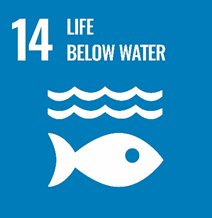
UNIZULU is uniquely located in a coastal region with a world renowned diversity of coastal and marine ecosystems. These include not only important marine conservation areas such as Isimangaliso Wetland Park, but also the vital estuarine link between land and sea in the form of estuaries of national conservation importance such as Lake St Lucia and the Richards Bay Harbour – Mhlathuze Estuary complex.
Estuaries serve as essential nurseries areas for all marine ecosystems, but are increasing under threat from human pressures. UNIZULU researchers from the Zoology, Geography and Botany departments focus on coastal and marine biodiversity research, with great strides being made to increase the understanding of how the human footprint and global warming are affecting our aquatic ecosystems and ultimately marine biodiversity. Research and student funding support for marine and estuarine biodiversity research, from the South African Aquatic Biodiversity Institute (SAIAB), through NRF funding, has allowed many postgraduate students to further their studies and establishing UNIZULU as a focal area for aquatic biodiversity research in South Africa. Researchers from Biochemistry and Microbiology are looking at unique marine microbes to solve industrial pollution, which is degrading our aquatic ecosystem. Geography researchers are using remote sensing and LIDAR to measure air pollution and the effects of oceanic warming. Zoology researchers are developing and refining toxicity tests and biomonitoring tools to enhance habitat quality of aquatic ecosystems, in view of the ever expanding industrial and residential developments in coastal areas. Such research efforts act as a virtual human conscience by constantly reminding us of our responsibility to sustain marine biodiversity. Recent increases in postgraduate student graduates and publication output attests to the strong research culture and advances in training tomorrow’s young scientists
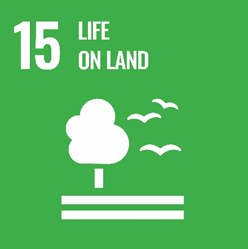
Collection, recycling and storage of water for later use are the three pillars of water conservation. Dams constructed in major rivers are the largest single intervention water conservation schemes that countries in both developed and developing world have embraced as “standard engineering design” for bulk water storage for later use. Access to clean water is an essential but scarce requirement for healthy and sustainable living. Due to indiscriminate and uncontrolled use of this resource, a large amount of wastages occurs which if not checked would lead to a very unhealthy shortage (Kumarasamy et al, 2017).
The use of water efficient technologies and alternative forms of collection, recycling and storage of water for later use has been underestimated despite the ability of combination of water saving technologies to save up to 80 percent of household consumptions. In order to bridge the gap, the Department of Hydrology at UNIZULU has designed a Rain Water Harvesting (RWH) project as a sustainable technology in promoting collection and storage of roof runoff for later use. First, roof RWH has been carried in several schools and communities in Zululand area where communities have been capacitated on the need to embrace RWH for self-reliance in access to water resources. Second, Runoffs that are not tracked and harnessed by roof catchments have been explored as potential recharge for groundwater.
The department has been involved in active exploration of groundwater for drilling of boreholes in Zululand and Mbazwana areas since 1992 under Hydrological Research Unit (HRU). The boreholes are active indicators of the potential of a specific catchment to water storage and use. Third, through collaborations, staff in the Department of Hydrology have been working on the design of smart toilets for optimal water use. This was tested on selected households in Durban Westville where up to 80 percent of household water consumption was saved (see Kumarsamy et al, 2017). Finally, in collaboration with the department of Chemistry at UNIZULU, the Department has calculated and designed the optimum biogas capacity of Empangeni Waste Water Treatment Plant (EWWTP) with a potential of recycling an average of a daily flow of 0.2 m3/sec flow back into the Empangeni river system
